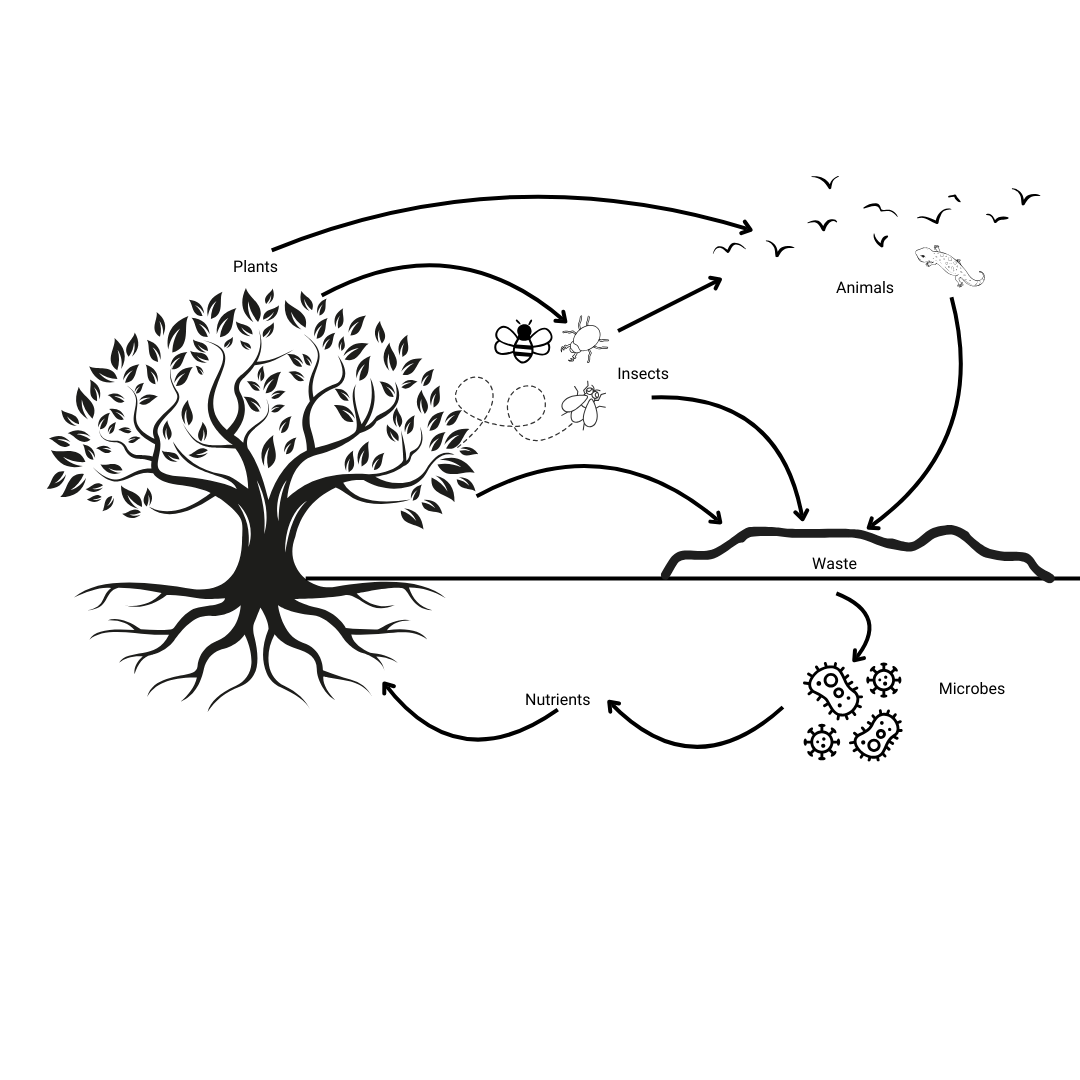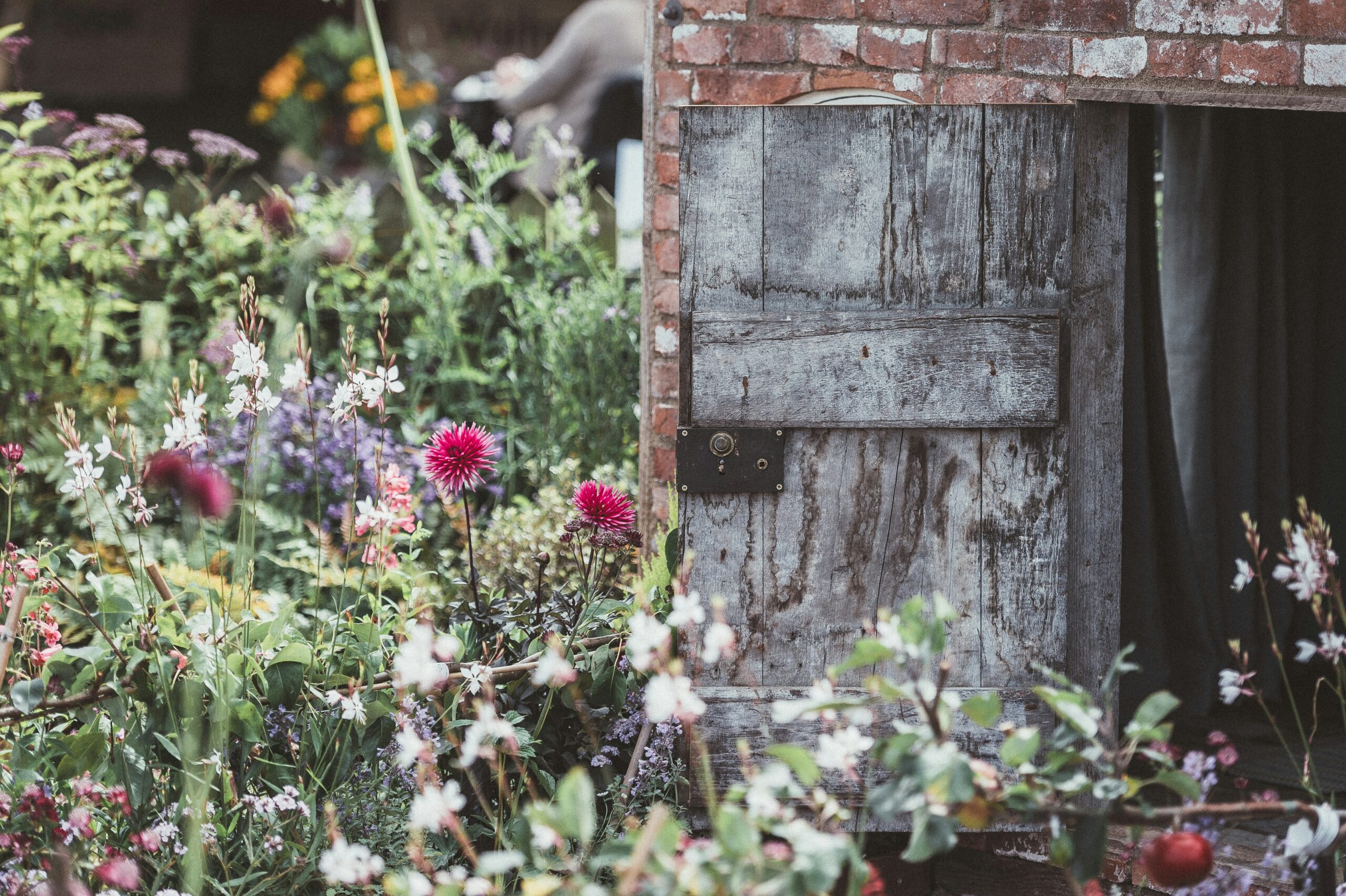By Georgina Bignell
In our gardens we may be focused solely on the plants but we need to remember that a garden is an ecosystem. Everything in our garden is part of the food chain. Plants provide food for insects and animals. In turn, plant, insect and animal waste provides food for microbes in the soil. Microbes break down the waste and feed the plants. If we do something as simple as picking all the trust off a tree, we are depriving the entire food chain of nutrients. If we can set up a really healthy ecosystem, it should be self sustaining and we will not have to intervene all the time with fertilisers, pesticides, fungicides and herbicides. Conversely, if we are harvesting from our plants, we know that we need to add more food to he soil in the form of mulch and fertilisers
Biodiversity is an important part of a healthy ecosystem. If we have a system with only one or two types of plants then we may lack a lot of insects, animals and even microbes. We are also setting ourselves up for disaster when some pest or disease invades. Different types of plants have different needs, attract different insects and animals and may even benefit other plants. Did you know the root secretions, aromas or fallen vegetation from certain plants can feed, protect or make other plants more healthy?
When we systematically grow beneficial plants together it is called companion planting. By increasing the plant biodiversity in out gardens we will also increase the biodiversity in the microbes, insects and other animals creating a much healthier system that can support and feed itself. Don't automatically kill off all ‘weeds’ in your gardens, they may actually be making the ecosystem a lot healthier. Don’t always gather fallen leaves, they are feeding your microbes and soil. Don't kill every bug you see, it might be a pollinator or kill damaging bugs. Remember, our greatest defence against pest and disease is having healthy, robust plants, which comes from a healthy ecosystem.
When we systematically grow beneficial plants together it is called companion planting. By increasing the plant biodiversity in out gardens we will also increase the biodiversity in the microbes, insects and other animals creating a much healthier system that can support and feed itself. Don't automatically kill off all ‘weeds’ in your gardens, they may actually be making the ecosystem a lot healthier. Don’t always gather fallen leaves, they are feeding your microbes and soil. Don't kill every bug you see, it might be a pollinator or kill damaging bugs. Remember, our greatest defence against pest and disease is having healthy, robust plants, which comes from a healthy ecosystem.
When we are setting up our gardens we tend to manipulate the most basic things like soil, water, mulch and position. We also need to consider the wider ecosystem. What beneficial or predatory insects and animals are we going to attract? What insects and animals do we want to deter? Are we constantly taking nutrients out of the system by harvesting from our plants? How are we feeding the soil? This can be a complex and ongoing project. In the next issue I will tell you more about companion planting and which plants will benefit your roses.


